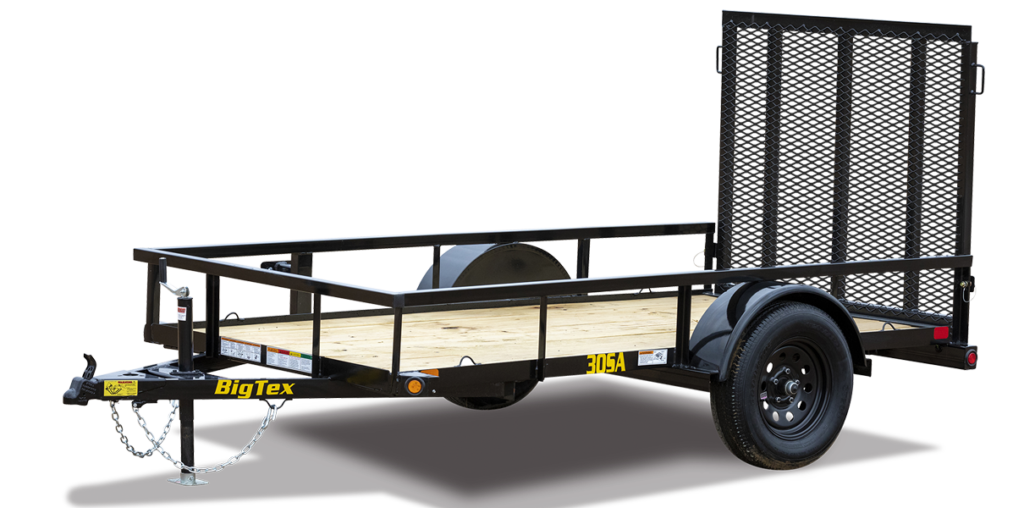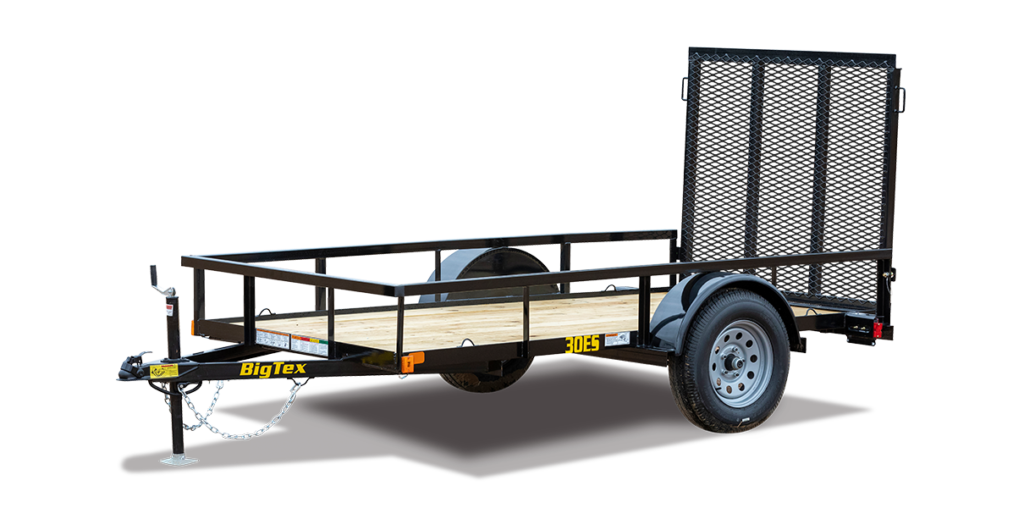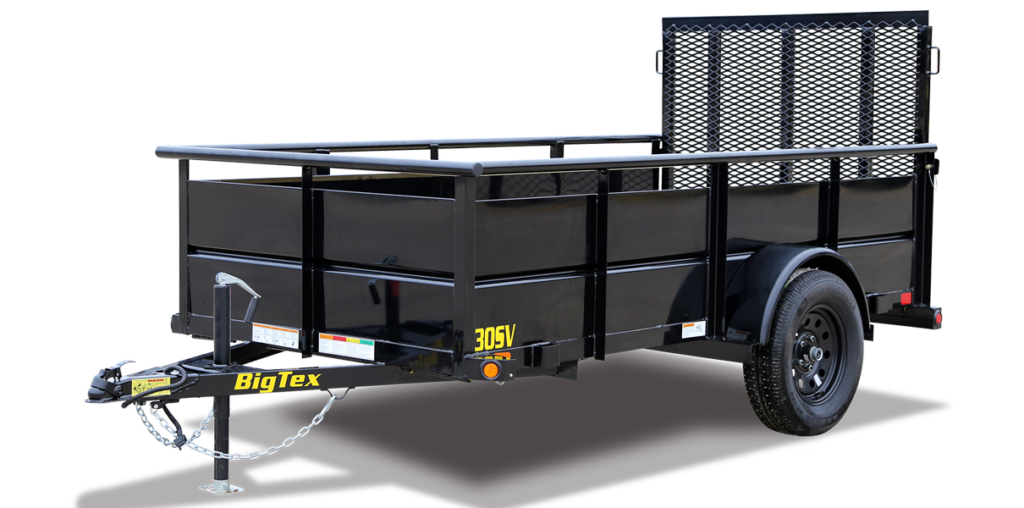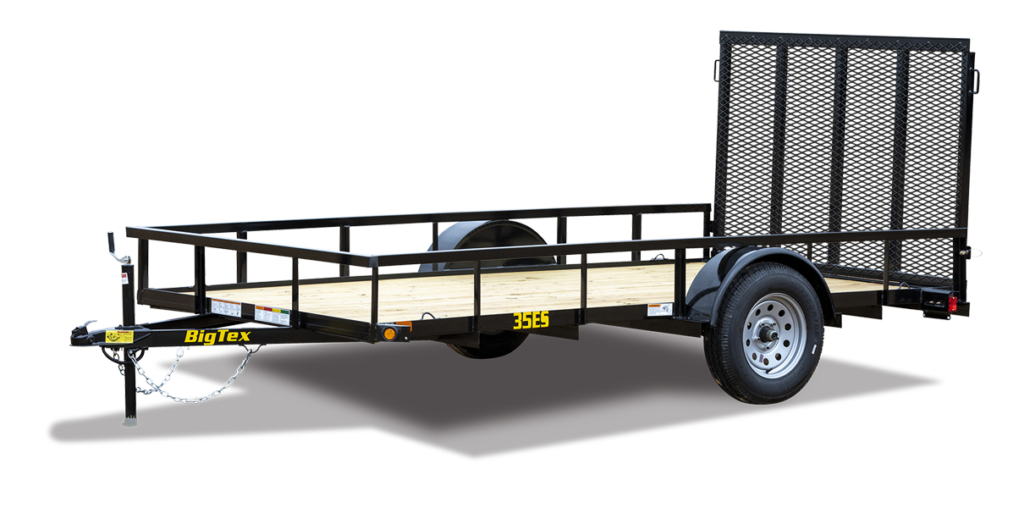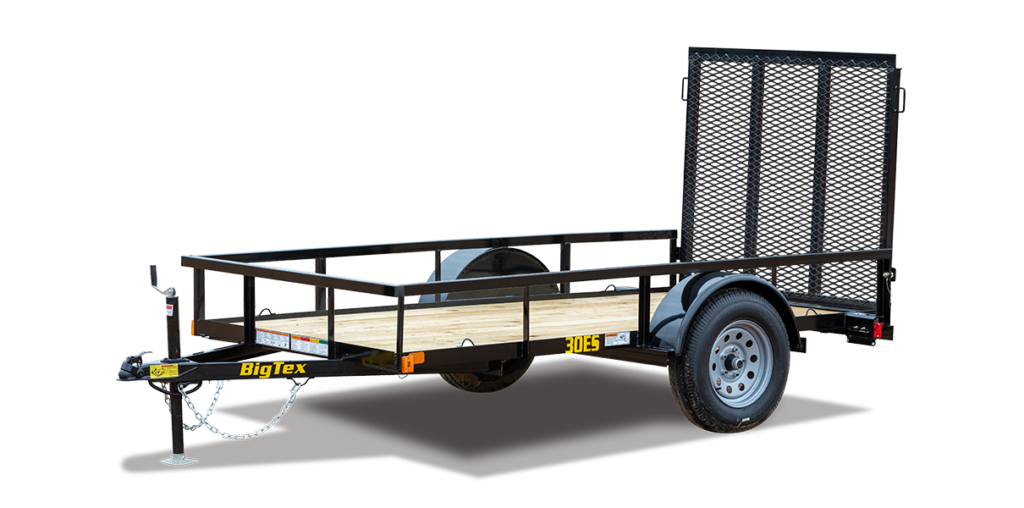
You’ve probably seen utility trailers around, but do you know how trailer work?
Utility trailers are wheeled vehicle weighing two thousand pounds or less, without motive power, which is designed to be drawn by a motor vehicle and which is generally and commonly used to carry and transport personal effects, articles of household furniture, loads of trash and rubbish, or not to exceed two horses over the public highways.
Trailer are designed to haul large loads on the back of a trailer. They come in many different sizes so you can find one that suits your needs best-from small personal trailer cargo carrier to large trailer equipment hauler. It may be used for carrying construction materials or furniture.
Trailer Buying Guide: Why do you need a utility trailer?
Utility Trailers make the life of people who wants to get the job done as quickly as possible extraordinarily easier. Here is our Trailer buying guide to help you with your utility trailer purchase.
You may be a landscaper who needs to haul equipment from property to property to get all your work done before the sun sets. You may be a farmer who needs to transport livestock to market. You may be an outdoor sporting enthusiast who has an ATV you want to bring to your weekend cabin. You may be someone with a lot of big, bulky furniture you need to move to your new home a trailer can be the best help for your daily work.
Another good reason to shop or for buying a trailer equipment trailer is that licensing and insuring the trailer are easy. You can purchase a one-time “permanent license” for the trailer from the DMV. There is no annual trailer inspection required. The vehicle insurance covers the trailer when attached to the towing vehicle.
Uses of Utility Trailers
There are several uses for a utility trailer. Here is a glimpse at just the uses of utility trailers:
Automobiles
From time to time it becomes necessary to haul an inoperable car or truck. Towing trucks are expensive, especially if the distance is great. A trailer is a great way to haul vehicles and a good investment if you need to do so regularly.
Boats
If you have a boat, you will need a utility trailer to get it to and from the water.
Building Supplies and Equipment
Stack up dimensional lumber, plywood sheets or drywall to gear up for a home improvement project or construction job. A trailer is a convenient way to prevent paying for shipping costs for your must-have supplies. Your trailer can also pull double duty and load up scrap materials and debris to send to the landfill or recycling center.
Recreational Vehicle
Prepare for an unforgettable weekend on the trails with your favorite recreational vehicle. Use a convenient ramp on your trailer to load up your dirt bike, ATV or golf cart and haul it to the trailhead or golf course. Don’t leave your favorite off-road vehicle behind or take a long drive just to reach your trailhead.
Furniture
Moving furniture is a breeze with a trailer. Furniture dollies roll right up onto the trailer and you can haul more than you can with a pickup.
Debris and Trash
Loading trash in and out of your pickup bed can be cumbersome and clean up can be messy, but it would be worse to have to haul trash in your SUV. Clean up after a big job is a lot easier with a trailer.
Livestock
An enclosed utility trailer is most often to haul livestock to a farm.
Auction and Flea Markets
If you frequent auctions and flea markets, you will need the hauling capability tools to bring home your inexpensive and rare finds.
Types of Utility Trailers
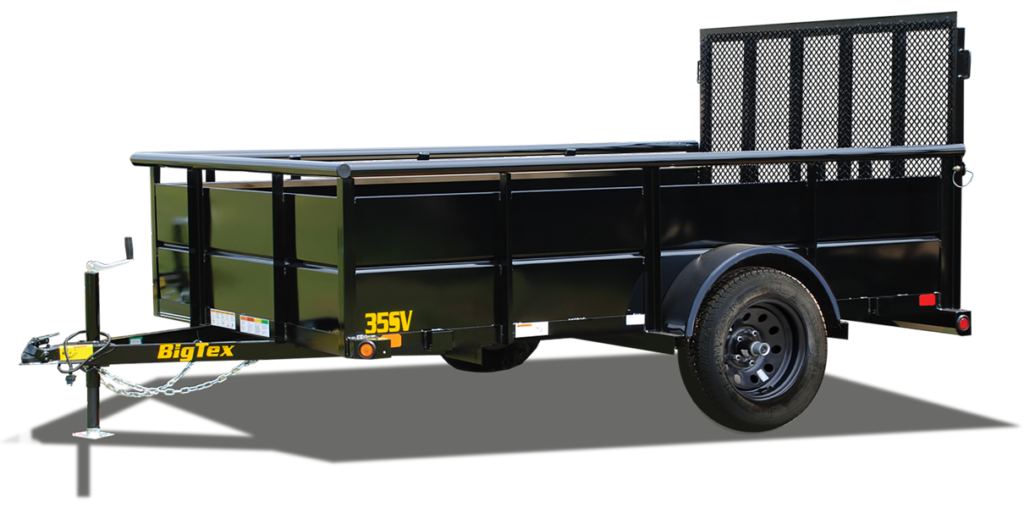
- The Basic Utility Trailer – Offering multiple sizes, the basic trailer will provide a platform, a tailgate, two wheels and guardrails around the outside. These trailers are great for moving equipment, hauling supplies, and general trailer trailer construction needs.
- Lowboy Trailers – One of the major benefits of a lowboy trailer is the ability for the trailer to be adjusted to a very low deck height. This makes loading and unloading heavier equipment much easier.
- Car Haulers – A car hauler trailer is just what it sounds like; it’s designed to move a vehicle. A Car Trailers Enclosed can range from a heavy-duty car dolly to a hydraulic car carrier trailer. Make sure to choose the right trailer plans based on the vehicle size you plan to move.
- Dump Trailers – From small single-axle to high capacity trailers dump trailers, you can build a dump trailer to fit your specific needs. These trailers work much like a dump truck with the ability to lift the platform and dump the load out of the trailer easily.
- Enclosed Cargo Trailers – When you need a bit more protection from the elements, an enclosed trailer makes quite a bit of sense. These trailers can be built in many different sizes for many different uses. They can be used for moving animals, equipment, supplies, and more.
- Trailer Flatbed Trailer – Unlike a basic trailer, a flatbed trailer won’t have the guardrails or utility trailer frame around the outside edges. Instead, it’s a flat surface, making it a bit easier to load and unload certain types of equipment.
How do you choose the right size utility trailer for your Cargo?
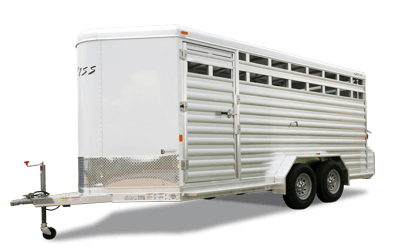
While searching for an ideal trailer, the best approach is to investigate its correct size. For example, if you want to utilize the trailer for moving furniture and boxes, you have to ensure that the surmount limit of the trailer is enough to carry the weight.
Then again, in case you’re searching for a trailer for minute business purposes then purchasing an expensive one would mean additional cost spent on its maintenance. Be wise and choose the right size.
For basic requirements like hauling a lawnmower or for doing household trash runs, a 5′ x 8′ should be sufficient.
For bigger projects like hauling tractors or bobcats, you might need a 7′ x 16′ or 7′ x 18′ equipment trailer. The general rule of thumb is to go a bit bigger than what you think you’ll need.
What should you look for when buying a utility trailer?
When you are buying a utility trailer, you will have to weigh in on the costs and benefits. Should you buy a used trailer or a new utility trailer? Here are some important points to consider when buying a trailer.
Size
A mover needs to find a trailer large enough to handle furniture and with a storage capacity limit to match. However, a business owner only view to make minor deliveries may find an expansive trailer overwhelming and a drain on finances due to increased maintenance costs. Every trailer owner has their own specifications and storage, and while it would be nice if there were a universal trailer for everything you could want to tow, that does not exist.
Durability
You want a trailer that is durable and can withstand varying weather and road conditions, so when making your purchase, be sure to think with your head and not your eyes.
Towing and Hitch Needs
Inspect your vehicle to understand its towing connections and capabilities. The worst possible scenario is getting a trailer that fits your size and durability needs, only to have known that the hitch or towing capability does not fit with your vehicle.
Another good reason in buying a trailer is that, once purchased, there is virtually no expense involved in the utility trailer maintenance or upkeep. Obviously you will need to check the air pressure in the tires, grease the wheel bearings, and make sure the lighting, turn signals and all trailer accessories are operating properly.
Check out Tires, Bearings, Hitch, Breaks, Suspension, Accessories
Make sure you know that the tires has no cracks or plugged holes as well as uneven wear dry rot or bulges. You should know that the tires should be able to carry the load you intend to haul on the trailer.
Ensure that the bearings and all accessories in the wheel are lubricated and seated properly, and don’t have any side to side or up and down play in them. The hitch should latch and unlatch properly with no missing parts.
Are the brakes on the axles working? Question your seller and go ahead and If possible, inspect the pads, shoes, drums, rotors, and magnets.
Check the leaf springs and spring hangers for cracks, breaks, and repairs which will indicate if there’s an extra load on the trailer or if there has been a sudden impact with something on the ground and the ball and axles have shifted. Also examine the frames, electricals and flooring before you purchase.
Clear Title
The vehicle you purchase must have a clear title. So play the devil’s advocate to find out the previous ownerships of the vehicle: was it stolen or borrowed? Where was it purchased from or where the owner or previous owners before him brought the vehicle from? As the new owner you need to be kept current on these things.
How much do utility trailers weigh?
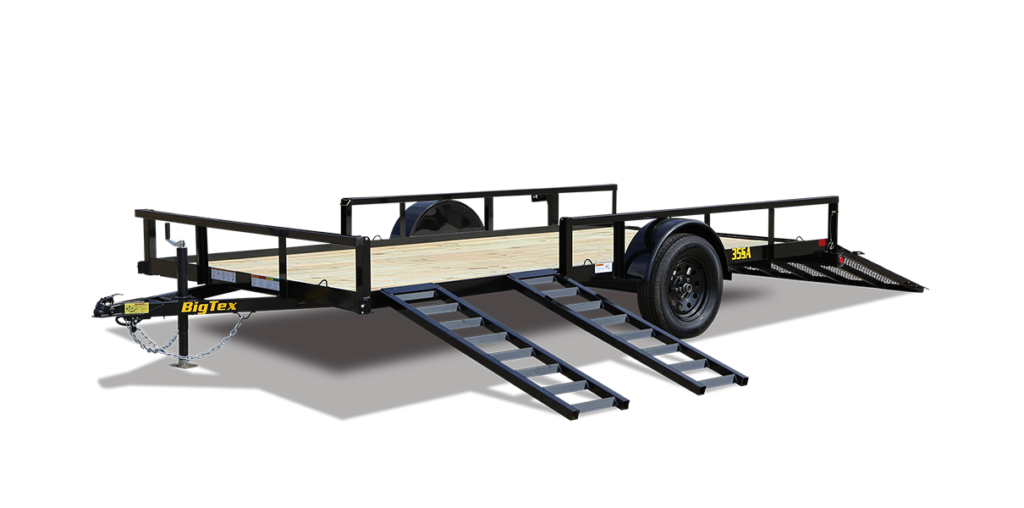
Utility trailers typically weight about 700 pounds unloaded, but they can vary greatly – from 300 to 1,100 pounds – depending on the construction, weight, width, features, number of axles and more. The type of trailer referred to here is an open trailer less than 10 feet long.
The weight of a small trailer can also range significantly. A short, aluminum trailer may only have a GVWR of 1,000 pounds, while a wide, double-axle, steel trailer may be rated for 3,000 pounds.
Cost Decision
Keep a tab on the real cost you would be paying for the utility trailer. If it is going to involve a lot of repairs and upgrades, it will make better economic sense to go in for a new trailer that would involve warranty.
There are a lot of sale utility trailer and price may be a significant factor for you as you purchase a trailer. You will need a trailer that will fit into your budget and will not make you incur costs, such as extensive repairs in the long run. While you may be on the fence as to whether to buy a new or a used trailer, make a choice that has better economic sense and value for your money.
Would you prefer spending more on a new trailer or spending less on a trailer and then a little more on getting it into good condition? Purchasing a trailer is a big deal. The main aim is to get a maximum return on your investment.
Utility trailer dealers will also offer you utility trailer financing or trailer financing programs from Financing companies to help you secure the funds for your Business or Personal trailer purchase. And it is your choice to choose which one do you want.
Choose the Right Trailer
Just like purchasing any other vehicle or automobile, you have to do your research, learn and make an informed decision when buying a utility trailer. Making a purchase, especially for an automobile, is one in which you have to explore various options as you narrow down your search for your pick.
